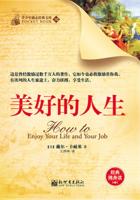Professor Herron filled to overflowing a downtown hall every noon with a series of talks entitled "Between Caesar and Jesus"--an attempt to apply the teachings of the Gospel to the situations of modern commerce. A half dozen publications edited with some ability and much moral enthusiasm have passed away, perhaps because they represented pamphleteering rather than journalism and came to a natural end when the situation changed. Certainly their editors suffered criticism and poverty on behalf of the causes which they represented.
Trades-unionists, unless they were also socialists, were not prominent in those economic discussions, although they were steadily ****** an effort to bring order into the unnecessary industrial confusion. They belonged to the second of the two classes into which Mill divides all those who are dissatisfied with human life as it is, and whose feelings are wholly identified with its radical amendment. He states that the thoughts of one class are in the region of ultimate aims, of "the highest ideals of human life," while the thoughts of the other are in the region of the "immediately useful, and practically attainable."
The meetings of our Social Science Club were carried on by men of the former class, many of them with a strong religious bias who constantly challenged the Church to assuage the human spirit thus torn and bruised "in the tumult of a time disconsolate." These men were so serious in their demand for religious fellowship, and several young clergymen were so ready to respond to the appeal, that various meetings were arranged at Hull-House, in which a group of people met together to consider the social question, not in a spirit of discussion, but in prayer and meditation. These clergymen were ****** heroic efforts to induce their churches to formally consider the labor situation, and during the years which have elapsed since then, many denominations of the Christian Church have organized labor committees; but at that time there was nothing of the sort beyond the society in the established Church of England "to consider the conditions of labor."
During that decade even the most devoted of that pioneer church society failed to formulate the fervid desire for juster social conditions into anything more convincing than a literary statement, and the Christian Socialists, at least when the American branch held its annual meeting at Hull-House, afforded but a striking portrayal of that "between-age mood" in which so many of our religious contemporaries are forced to live. I remember that I received the same impression when I attended a meeting called by the canon of an English cathedral to discuss the relation of the Church to labor. The men quickly indicted the cathedral for its uselessness, and the canon asked them what in their minds should be its future. The men promptly replied that any new social order would wish, of course, to preserve beautiful historic buildings, that although they would dismiss the bishop and all the clergy, they would want to retain one or two scholars as custodians and interpreters. "And what next?" the imperturbable ecclesiastic asked. "We would democratize it," replied the men. But when it came to a more detailed description of such an undertaking, the discussion broke down into a dozen bits, although illuminated by much shrewd wisdom and affording a clue, perhaps as to the destruction of the bishop's palace by the citizens of this same town, who had attacked it as a symbol of swollen prosperity during the bread riots of the earlier part of the century.
On the other hand the workingmen who continue to demand help from the Church thereby acknowledge their kinship, as does the son who continues to ask bread from the father who gives him a stone. I recall an incident connected with a prolonged strike in Chicago on the part of the typographical unions for an eight-hour day.
The strike had been conducted in a most orderly manner and the union men, convinced of the justice of their cause, had felt aggrieved because one of the religious publishing houses in Chicago had constantly opposed them. Some of the younger clergymen of the denominations who were friendly to the strikers' cause came to a luncheon at Hull-House, where the situation was discussed by the representatives of all sides. The clergymen, becoming much interested in the idealism with which an officer of the State Federation of Labor presented the cause, drew from him the story of his search for fraternal relation: he said that at fourteen years of age he had joined a church, hoping to find it there; he had later become a member of many fraternal organizations and mutual benefit societies, and, although much impressed by their rituals, he was disappointed in the actual fraternity. He had finally found, so it seemed to him, in the cause of organized labor, what these other organizations had failed to give him--an opportunity for sacrificial effort.
Chicago thus took a decade to discuss the problems inherent in the present industrial organization and to consider what might be done, not so much against deliberate aggression as against brutal confusion and neglect; quite as the youth of promise passed through a mist of rose-colored hope before he settles in the land of achievement where he becomes all too dull and literal minded.















